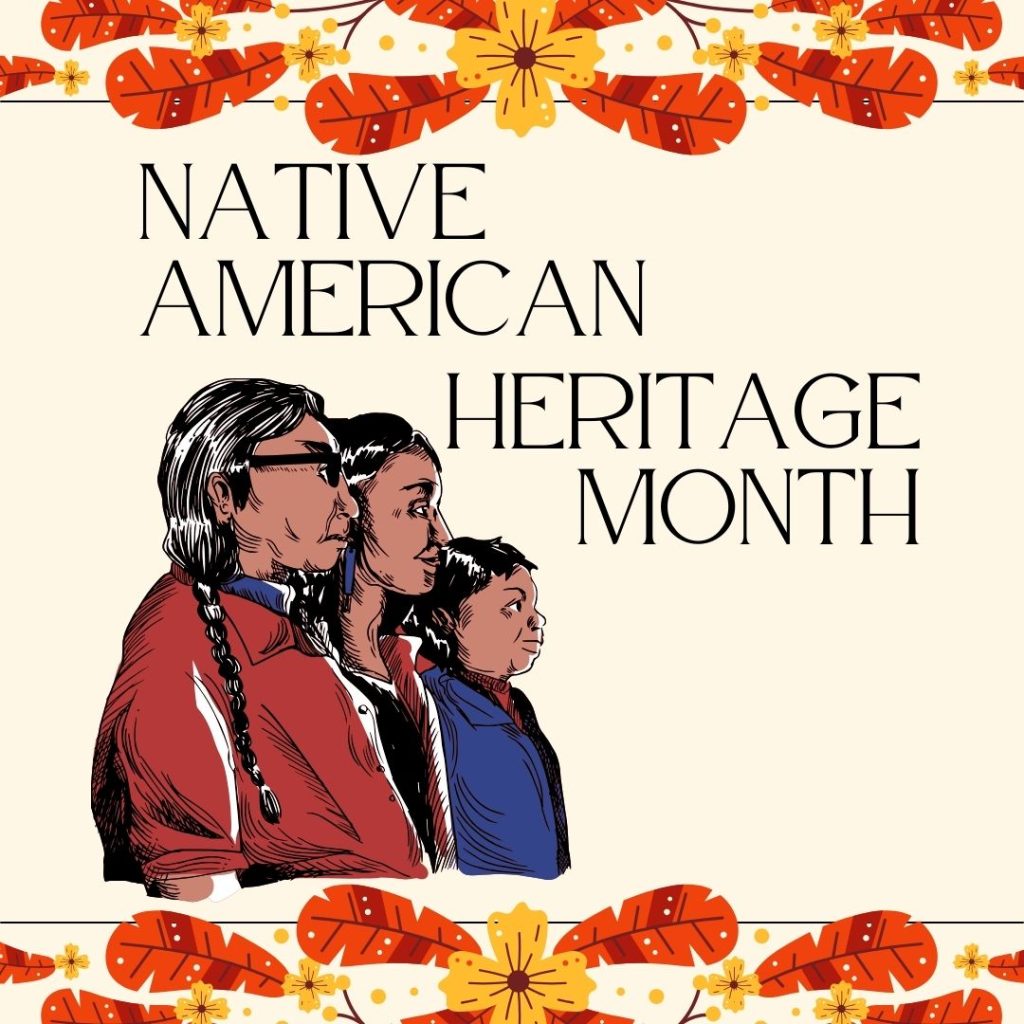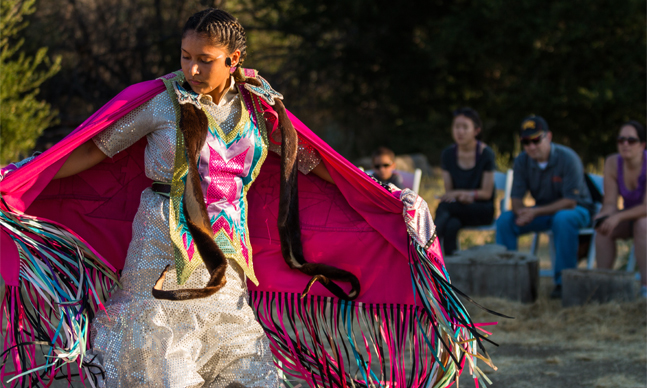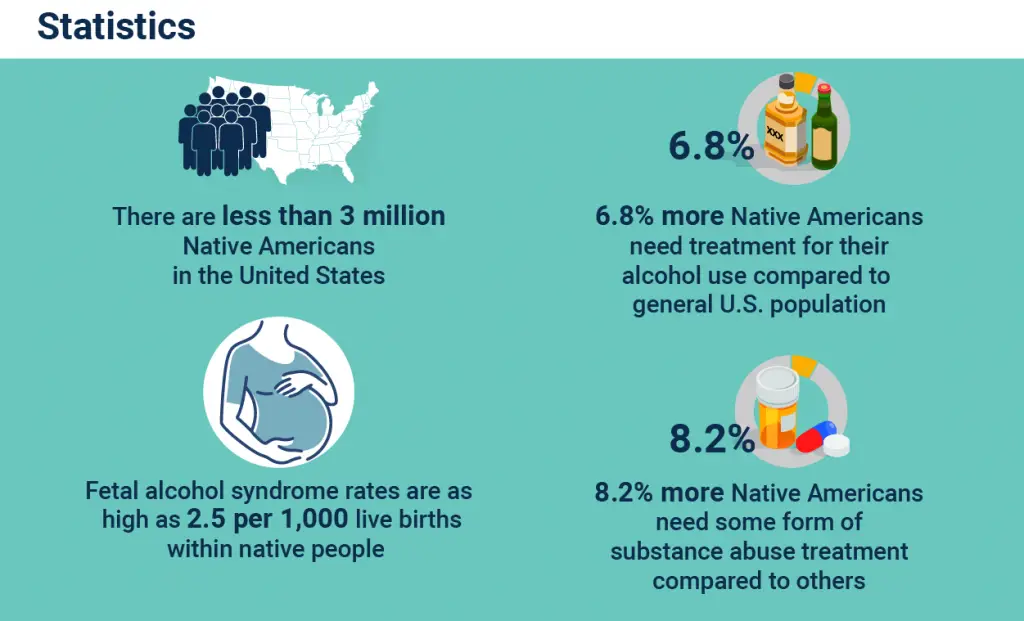November is Native American Heritage Month!
in Local Events, Local News, Massachusetts News, National News

Native American Heritage Month
Native American Heritage Month, celebrated each November, is a time to honor cultures, traditions, and contributions of Native American and Alaska Native communities. This observance began in 1990 when President George H. W. Bush approved a joint resolution designating November as National American Indian Heritage Month. The month-long celebration aims to recognize the significant impact Native Americans have had on the history, culture, and achievements of the United States.
It also serves as an opportunity to educate the public about the unique challenges Native people have faced both historically and, in the present, and to highlight their ongoing contributions to society. Through various events and educational programs, Native American Heritage Month helps ensure that the rich histories and stories of Indigenous peoples continue to thrive with each passing generation.
Native American heritage is rich with diverse cultures and traditions that vary widely among the over 570 federally recognized tribes in the United States. Here are a few examples: 
- Storytelling: Oral traditions are a cornerstone of Native American culture. Stories are passed down through generations, often teaching moral lessons, preserving history, and explaining natural phenomena. These stories are sometimes accompanied by dance, music, and elaborate ceremonies.
- Arts and Crafts: Many Native American communities are known for their unique artistic expressions, including beadwork, pottery, weaving, and carving. These crafts are not only beautiful but also hold cultural significance and are often used in ceremonies and daily life.
- Traditional Foods: Foods like frybread, corn, beans, and squash (often referred to as the “Three Sisters”) are staples in many Native American diets. These foods are deeply connected to cultural practices and agricultural traditions.
- Ceremonies and Rituals: Various ceremonies mark important life events and seasonal changes. For example, the Navajo have the Kinaaldá ceremony, which celebrates a girl’s transition to womanhood. Many tribes also hold ceremonies to honor the harvest, the changing seasons, and other significant events.
- Powwows: These are social gatherings that celebrate Native American culture through dance, music, and traditional regalia. Powwows often include drum circles, singing, and various dance competitions, serving as a way to honor heritage and bring communities together.
These traditions and practices are vital in maintaining the cultural identity and heritage of Native American communities, ensuring that their rich histories and contributions continue to be recognized and celebrated.
Mental health and substance use challenges among this population 
Native American communities face significant mental health and substance use challenges, often at rates higher than the general U.S. population. These issues are deeply intertwined with historical trauma, social determinants of health, and ongoing systemic inequities.
- Mental Health: Native Americans experience high rates of mental health disorders, including depression, anxiety, and post-traumatic stress disorder (PTSD). Suicide rates among Native American youth are particularly alarming, being the highest of any ethnic group in the U.S. Historical trauma, such as forced relocations and cultural suppression, continues to impact mental health across generations.
- Substance Use: Substance use disorders, including alcohol and drug abuse, are prevalent in many Native American communities. Factors contributing to these high rates include poverty, lack of access to healthcare, and social isolation1. Alcohol-related deaths and drug overdose rates are significantly higher among Native Americans compared to other groups.
How can you support this population and their needs?
- Cultural and Community-Based Solutions: Addressing these challenges requires culturally competent care that respects and incorporates Native traditions and practices. Community-based programs that integrate traditional healing practices with modern mental health services have shown promise. For example, incorporating storytelling, sweat lodges, and other cultural rituals into treatment can enhance the effectiveness of mental health and substance use interventions.
- Educate Yourself: Take the time to learn about the history, cultures, and contemporary issues facing Native American communities. Reading books, watching documentaries, and attending lectures or webinars can deepen your understanding.
- Support Native-Owned Businesses: Purchase goods and services from Native-owned businesses. This can include art, jewelry, clothing, and other products that reflect Native craftsmanship and creativity.
- Attend Cultural Events: Participate in local events such as powwows, art exhibitions, and cultural festivals. These events provide an opportunity to experience Native American culture firsthand and show your support.
- Donate to Native Organizations: Contribute to organizations that support Native American communities. This can include nonprofits focused on education, health, legal rights, and cultural preservation.
- Advocate for Policy Changes: Support policies and initiatives that address the needs and rights of Native American communities. This can involve contacting your representatives, signing petitions, and raising awareness about important issues.
- Promote Native Voices: Share and amplify the work of Native American authors, artists, musicians, and activists on social media and within your community. Highlighting their contributions helps to ensure their voices are heard.
- Respect Cultural Practices: When engaging with Native American culture, do so with respect and sensitivity. Avoid cultural appropriation and seek to understand the significance behind traditions and symbols.
Resources
Mental Health Resources
- Indian Health Service (IHS): Provides integrated health and wellness services that are holistic and culturally appropriate. They offer various programs, including the Behavioral Health Integration Initiative and the Zero Suicide Initiative.
- StrongHearts Native Helpline: A 24/7 helpline offering support for domestic and sexual violence, available at 1-844-762-84832.
- National Suicide Prevention Lifeline: Available 24/7 at 1-800-273-8255, offering crisis support.
- Indian Country Child Trauma Center: Provides resources on trauma-informed care for tribal communities.
Substance Use Resources
- Substance Abuse and Mental Health Services Administration (SAMHSA): Offers culturally competent care and resources tailored to the unique needs of Indigenous people.
- One Sky Center: An advocacy group working to improve access to substance abuse treatment and resources for Indigenous peoples.
- IHS Substance Abuse and Suicide Prevention Program: Focuses on reducing substance abuse and suicide rates through culturally relevant interventions.
Educational Resources
- Native Knowledge 360°: An initiative by the National Museum of the American Indian to transform teaching and learning about Native Americans through interactive resources and lesson plans.
- National Indian Education Association (NIEA): Provides data and resources to improve education systems serving Native students.
- Native American Language Resource Collection: Offers high-quality instructional resources for Native American language stakeholders, supported by the U.S. Department of Education.
These resources aim to support the well-being and educational advancement of Native American communities, ensuring access to culturally relevant and effective services.
